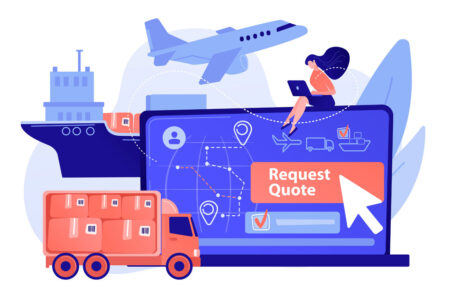Whether you should implement AI or not depends on many things: your industry, your vision, your ultimate business goals.
A lot of people would answer the title question with a resounding yes! The reasoning behind it appears sturdy: Artificial Intelligence (AI) can automate repetitive tasks, improve workflows, aid with customer support, get business insights and help recruit talent.
Yet, things aren’t so simple. Whether you should implement AI or not will depend on many things: your industry, your vision, your ultimate business goals. After thoughtful consideration of these and other factors, you might find that you don’t need AI at all (or that you could integrate it into a specific part of your workflow). Naturally, you might feel a little overwhelmed when starting to analyze AI for your business, as there’s plenty of things to take into account.
So, where should you start? Here I’m proposing a road map that can lead you to a decision regarding AI. It can help you decide if you actually will benefit from this tech before you hire a nearshore development services company to create your own AI-based platform.
Understanding AI’s strengths
Knowing how AI works and how you can use it is essential, but not enough to start identifying whether it’s a good match for you or not. You also need to understand its strengths so you can comprehend the kind of tasks that this technology can tackle. Thus, it’s crucial for you to know that today’s AI makes the most impact in situations where you need human logic and judgment, but using people for them isn’t feasible or scalable, or it’s limited by human skill, accuracy, or speed.
You should also know that modern AI algorithms are best when doing the following:
-
Recognizing patterns
-
Processing language
-
Conducting predictive analysis
-
Working in hazardous environments
-
Sifting through large amounts of content
-
Finding the shortest path to a solution among multiple possibilities
-
Working nonstop in low-level tasks for 24-hour cycles
As broad as those might seem, they already provide you with a framework that allows you to imagine the possibilities of AI for your business. Once you complement it with the knowledge you gain by following the next suggestion, you’ll have a proper understanding of what AI can mean for your company.
Learn about AI uses in your industry
Considering AI uses in your sector can help you identify the real opportunities that technology can bring to your business. If all of your competitors are using AI to serve clients, hyperpersonalize content or analyze the market, then AI is the right fit for you (and that you need to develop an AI strategy as soon as possible to avoid falling further behind).
There are industries where AI is very common, including manufacturing, healthcare, fintech, retail and marketing. If your company belongs to one of those sectors, consider investing in AI. But if you are part of other industries, you should first see how impactful AI can truly be. That doesn’t mean you can lay back and relax knowing that your competitors aren’t using AI – it means that you’ll have to evaluate if there’s something AI can bring you that no other company in your sector has seen yet.
Contemplate AI’s integration with your overall strategy
On paper, implementing AI to your workflow seems amazing: It can revolutionize your pipeline, bring your efficiency to new heights and help you scale like never before. However, you shouldn’t buy into the hype without a proper assessment of your overall strategy first. AI can theoretically give you a huge competitive advantage, but only if it makes sense in your current strategy.
What does that mean? That you should check if integrating AI aligns with your broader objectives. For example, AI might make sense if you’re revamping your entire marketing strategy. But if you’re developing a complex new product, implementing AI can get in the way, as the process of integrating it may take key resources away from the product development.
AI can help you with product development, but if you launch yourself to do both the development and the AI implementation at the same time, chances are you’ll end up with a haphazard effort at both. Sure, a lot of people are recommending that businesses implement AI, and while there is some sense to it, that doesn’t mean you should disrupt your current strategy because of it. If AI doesn’t align with your current objectives, then come up with a plan to complete your current roadmap and circle back to AI implementation later on.
Think about budget
For a long time, businesses didn’t want to invest in AI mainly because it was a costly move that didn’t have an assured ROI. As time went by, AI became more accessible and more affordable (especially thanks to the proliferation of AIaaS services). However, AI is not a cheap asset that anyone can afford, though. Implementing AI requires an important investment that you have to consider before actually committing to it.
If your budget allows your business to allocate resources for AI development, then things get easier, as you’ll only need to think about which road is best for you: either an off-the-shelf AI-driven solution or a custom AI software solution developed in conjunction with nearshore software outsourcing engineers. If your budget is tight, the answer is even simpler: You aren’t ready for AI, and you need to start planning how you can make room to accommodate future AI investments.
AI as a partnership
The day where you’ll have to invest in AI will come sooner rather than later, so you may want to get acquainted with the idea of AI implementation and what it means for you. That prediction doesn’t mean you have to commit to that implementation today, though. You aren’t obligated to integrate AI into your workflow, regardless of what you might have read or heard. Sure, there are plenty of advantages to be had, but they mostly depend on your company’s context and specifics.
We’re still far from the AI that’s able to autonomously work on everything we can think of. Instead, AI’s capabilities are narrow, which turns the technology into a powerful tool that can elevate your human team’s abilities. In that light, AI is great to make predictions to inform decisions, solve problems and achieve business goals.
That means that deciding whether you need AI or not will have you looking at the problems you need to solve, the challenges that lie ahead of you, and the overall strategy you designed for all of it.
Once you have a clearer picture of your current standing, you can arm yourself with a more in-depth knowledge of AI’s possibilities and define if a sophisticated AI-driven solution is what you need or if there are other simpler solutions that you can start applying right now.


